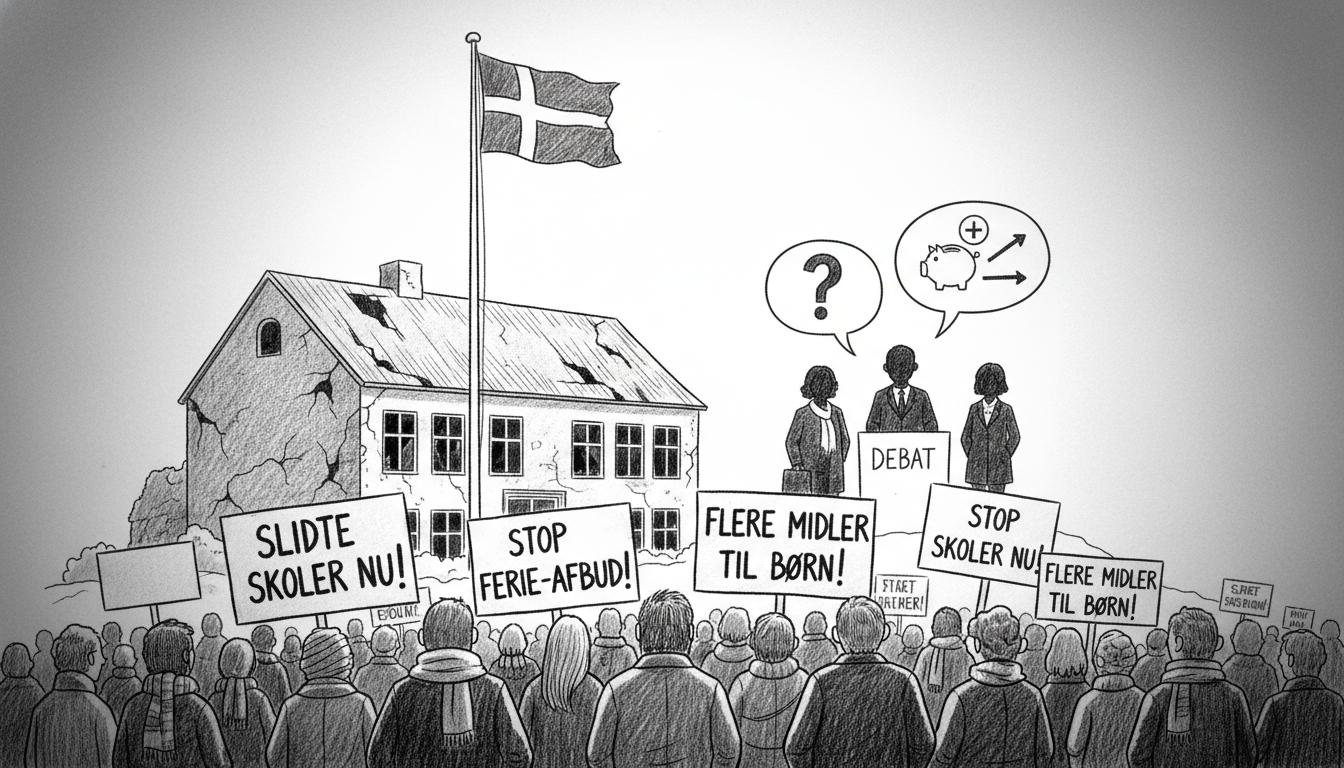Parents in Skanderborg are demanding increased funding for local schools ahead of a crucial election debate. They point to deteriorating buildings, canceled field trips, and outdated classrooms as evidence of systemic underfunding.
Jane Hagelskjær, chair of Morten Børup School's board, expressed deep concern about student wellbeing. She said schools intervene too late with struggling children. Current resources force staff to wait until students experience severe distress rather than providing early support.
Hagelskjær wants additional funding for two-adult classrooms and differentiated instruction. She acknowledged staff do their best with available resources but described the situation as stretched to its limits. Years of budget constraints have created heavy burdens for classrooms, learning outcomes, and municipal finances when students require specialized services.
Official data reveals Skanderborg schools receive less funding per student than the national average. Only one other municipality in Denmark spends less per student. This funding gap has persisted for multiple years.
Henrik Dyreborg Prip, chair of Niels Ebbesen School's board, hopes for concrete solutions during tonight's debate. He identified two main issues: inadequate early intervention for vulnerable children and poor physical facilities. Both problems stem from insufficient financial resources.
Several political parties recognize the need for school improvements. The Social Democrats, Socialist People's Party, and Social Liberals recently made a joint pledge. They promised an additional 20 million kroner annually for local schools, to be implemented during the next council term.
Mayor Frands Fischer shares parental concerns and has a fourth-grade son himself. He described the proposal as building on previous 38 million kroner in school improvements achieved through difficult budget decisions.
Charlotte Vindeløv of the Socialist People's Party was clear about funding priorities. She stated that one adult managing 28 students creates unacceptable conditions. More adults must surround the children.
The funding question remains contentious. Jens Szabo, the Liberal Party's lead candidate challenging for mayor, acknowledged problems but presented a different perspective. He noted that Skanderborg students achieve reasonably good grades and low exclusion rates compared to national benchmarks.
Szabo characterized the opposition parties' proposal as noble but unwise. He pointed to an existing 29 million kroner budget shortfall and expressed concern that elderly services might suffer if education receives additional funding.
Vindeløv countered that her party isn't afraid to discuss tax increases as potential solutions. Szabo immediately rejected this approach, calling tax-funded solutions irresponsible given current economic constraints.
The debate occurs against the backdrop of Denmark's unique municipal governance system where local councils control education funding and priorities. This structure creates significant variation in school resources across municipalities, with wealthier areas typically outperforming less affluent regions.
International readers should understand that Danish folkeskole covers primary and lower secondary education for ages 6-16. The system is tax-funded and generally high-performing internationally, though internal disparities like those in Skanderborg occasionally emerge during local election cycles.
The outcome of this funding debate could influence similar discussions in other Danish municipalities facing budget pressures. It also highlights the tension between maintaining fiscal responsibility and addressing clear needs in public services.
The evening debate at Skanderborg Gymnasium begins at 6:30 PM local time.

